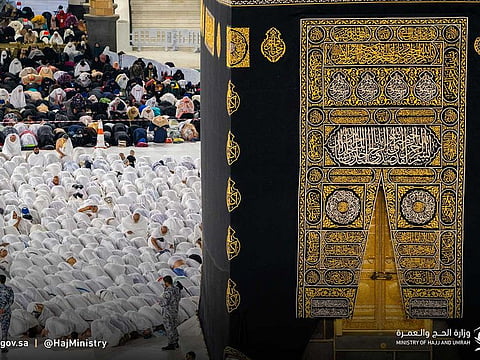Umrah from UAE this Ramadan? 3 crucial things to know before you go!
Mandatory vaccines, Umrah permit and visa, passport validity – explained

Also In This Package
Dubai: During the month of Ramadan, there is a major increase in the number of pilgrims who travel to Saudi Arabia to perform Umrah. If you, too, plan to travel from the UAE to Saudi Arabia during this month, here are three essential things you must know to ensure you have a smooth journey.
1. Influenza vaccine is mandatory
Firstly, you need to make sure you have taken the flu vaccine, because since March 26, 2024, the UAE’s Ministry of Health and Prevention (MOHAP) has made it mandatory for all Umrah pilgrims to be vaccinated against influenza. This requirement is also applicable for Hajj pilgrims.
If you are planning to go for Umrah soon, make sure you don’t delay getting the influenza vaccine – MOHAP recommends pilgrims to get the vaccine at least 10 days before departure to guarantee the vaccine’s efficacy and your immunity. Those with chronic diseases should also consult their doctor to verify their health stability for Hajj and Umrah, according to MOHAP.
Flu vaccines are available across the UAE in private clinics, hospitals and government health centres operated by the Dubai Health, Emirates Health Services (EHS), and Abu Dhabi Health Services Company – SEHA, and Mubadala Health. To find out how you can book an appointment for the flu vaccine in the UAE, read our guide here.
If you have already received the influenza vaccine within the past year, you do not require a new dose and can present your vaccination card, available through the Al Hosn app, at the time of departure.
2. Your UAE visa should be valid for at least 90 days
The Saudi eVisa available to UAE residents is a multiple-entry visa, which is valid for one year. While applying for the visa, you need to ensure that your UAE residence visa is valid for at least three months. However, if you had applied for the visa earlier, and are travelling during Ramadan, you need to make sure that at the time you are flying out, you still have a validity of at least three months on your UAE residence visa.
Additionally, your passport must also be valid for at least six months.
For a detailed guide on how to apply for the Saudi eVisa, read our detailed guide here.
3. Apply for Nusuk – you can only perform Umrah once in Ramadan
On March 17, 2024, Saudi Arabia announced that multiple Umrah permits will not be issued for Ramadan.
According to Saudi Ministry of Hajj and Umrah (MOHU), Ramadan is the peak season for Umrah pilgrims, and limiting the number permits will ease overcrowding.
To perform Umrah, Muslims from abroad must obtain a permit in advance from the Nusuk mobile application. The Umrah permit must be obtained before arriving at the Grand Mosque in Mecca.
The Nusuk app, which is available for Apple and Android devices, is the ‘official guide to Mecca and Medina’, providing pilgrims with information on immigration requirements, Umrah group packages, rituals that need to be followed during Umrah and details on various sites within Mecca and Medina that people can visit. To know more about how you can plan your entire Umrah journey online through the Nusuk app, read our detailed guide here.
Sign up for the Daily Briefing
Get the latest news and updates straight to your inbox










